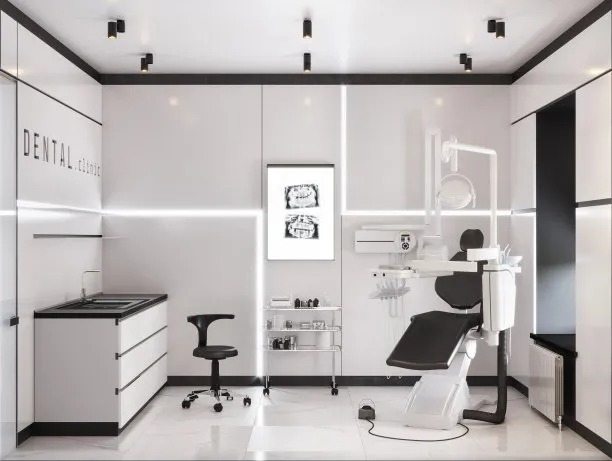Summary: The future of dental implants promises transformative solutions for individuals suffering from missing teeth. This comprehensive guide delves into the latest innovative treatments, from advanced materials to cutting-edge surgical techniques and personalized care. We will explore the evolution of dental implants, current trends in technology, future developments on the horizon, and the overarching benefits for patients. With this understanding, individuals can become well-informed and empowered about their dental health choices.
1. Evolution of Dental Implants Technology

The journey of dental implants has witnessed significant advancements since their inception. The first modern dental implants, introduced in the 1960s, were made of titanium, which offered durability and compatibility with human bone. Over the years, these implants have evolved in terms of design, material, and application. The integration of 3D imaging and computer-aided design (CAD) has allowed for more precise placement and better outcomes.
New implant designs focus on enhancing osseointegration, the process where the implant fuses with the jawbone. Innovations such as rough-surfaced implants promote faster healing and stronger anchorage. Furthermore, trends in mini-implants provide a less invasive option for patients with limited bone density, allowing for a wider demographic to benefit from implant technology.
In essence, the evolution of dental implants reflects a commitment to improved patient outcomes, with ongoing research driving further innovation in design and functional applications.
2. Current Trends in Dental Implant Treatments
Current trends in dental implant treatments emphasize personalization and patient-centered approaches. Many dental practices now utilize digital planning tools to tailor the treatment plan to individual anatomical needs, resulting in higher success rates and reduced recovery times. Personalized implants can be designed based on a patients specific bone structure, ensuring a perfect fit.
There is also a growing emphasis on the use of biocompatible materials in implant production. Innovations in zirconia implants, which offer an aesthetic advantage and reduce allergic reactions, have garnered interest as alternatives to traditional titanium options. This caters particularly to patients seeking metal-free solutions.
Additionally, the advent of immediate-loaded implants allows for faster restoration, enabling patients to receive a temporary crown on the same day as the implant placement. This technique significantly improves patient satisfaction and quality of life during the recovery process, highlighting the shift toward more efficient solutions.
3. Future Innovations on the Horizon
The future of dental implants is promising, with ongoing research paving the way for groundbreaking innovations. One area of focus is the development of smarter implants equipped with sensors that monitor the implants stability and health over time, providing dentists with real-time data to prevent potential failures.
Stem cell technology is also emerging as a potential game-changer in regenerative dentistry. By using stem cells, researchers aim to promote natural bone growth, eliminating the need for grafting in some cases. This could dramatically simplify procedures and enhance recovery outcomes.
Furthermore, advancements in robotics and artificial intelligence (AI) are set to revolutionize surgical procedures. Robotic-assisted implant placements could enhance precision and reduce the risk of human error, while AI algorithms can help in pre-surgical planning, predicting outcomes based on vast datasets.
4. Benefits of Modern Dental Implants
The benefits of modern dental implants extend beyond aesthetics; they significantly improve oral health and overall well-being. By filling in gaps left by missing teeth, implants help maintain jawbone density and prevent further deterioration, which can lead to additional tooth loss.
Moreover, dental implants replicate the function of natural teeth, allowing patients to eat, speak, and smile with confidence. They provide a stable and reliable solution compared to removable dentures, which can often cause discomfort or limitations.
Modern dental implants also offer unparalleled longevity when properly maintained, making them a cost-effective solution in the long run. The advancements in technology ensure that patients receive the best care possible, thus enhancing their quality of life.
Summary:
The future of dental implants signifies a remarkable shift towards innovative solutions that enhance both functionality and aesthetics. With rapid advancements in technology and treatment personalization, individuals seeking dental restoration can expect improved outcomes and greater satisfaction. Staying informed about these developments empowers patients in making eligible choices for their oral health.
This article is compiled by Vickong Dental and the content is for reference only.
Vickong Dental
Vickong Dental is a large medical group established in Hong Kong in 2008 by professors from well-known medical universities in Guangdong and Hong Kong, as well as medical doctors from key national '985' universities (including Master's supervisors and senior professors). The chain of branches brings together expert dentists with PhDs and Master's degrees from Hong Kong and Mainland China, committed to providing high-quality dental treatment.
"Vickong Dental Practices the University Motto of 'Healing and Serving Society,' with a Stable Operation for Sixteen Years. It Has Been honored with Hong Kong Enterprise Leaders's Choice,' and is a Global Trusted Implant Center for the Nobel Implant System. Recommended by Hong Kong Metro Broadcast and Guangdong Television, it Serves Customers from Over Thirty Countries and Regions, Gaining the Trust and Favor of Citizens from the Guangdong-Hong Kong-Macau Greater Bay Area and Surrounding Cities.

Thousands of customers' unanimous praise
The most recognized and highly recommended dental service by customers in the Guangdong-Hong Kong-Macau Greater Bay Area
We Ensure You Receive Detailed Care and Attention Here
Hong Kong standards, Shenzhen prices, Your Trusted English-speaking dentists

Vickong Dental Medical-Grade Instrument Disinfection Process
Vickong Dental Medical-Grade Instrument Disinfection Process

Vickong Dental Chain: A Warm and Comfortable Environment for Treatment






Appointment Hours

Q&A
Why choose Vickong Dental?
Vickong Dental practices the university motto 「Medicine to Benefit Society」, with each branch bringing together highly qualified dentists with doctoral and master’s degrees from Hong Kong and the Mainland, and has maintained seventeen years of steady operation。Recipient of 「2024 Hong Kong Enterprise Leaders Brand」, 「2025 Hong Kong Enterprise Leaders Brand」, a Nobel Biocare Global Trusted Implant Center, and a brand recommended by Metro Radio Hong Kong and Guangdong TV。
To date, we have served customers from more than thirty countries and regions,earning exceptionally high word-of-mouth recognition and trusted recommendations from residents across the Guangdong-Hong Kong-Macao Greater Bay Area and surrounding cities
We have eight major branches in Zhuhai、Shenzhen,and a consultation and service assurance center in Hong Kong,so you can book a free consultation at any time for any questions,which is very reassuring.
If I do not accept the quotation after the CT scan, will I be charged??
No! As long as the actual treatment has not started, you will not be charged any fees.
Will there be any additional charges during the treatment process?
No, there won’t be any additional charges. Before treatment begins, we will clearly explain the treatment plan and its corresponding fees. Only after the patient agrees and signs the consent form will we proceed with the dental service.
Can I pay in Hong Kong dollars?
Yes. Vickong Dental accepts payment in Hong Kong dollars. The amount will be converted based on the exchange rate of the day, and the applicable rate will be clearly communicated to you in advance.
Can I reschedule my appointment at any time?
Yes. Please contact us via **WeChat** or **WhatsApp** as early as possible, providing your original appointment time and details, along with your preferred new date and time slot for rescheduling.













